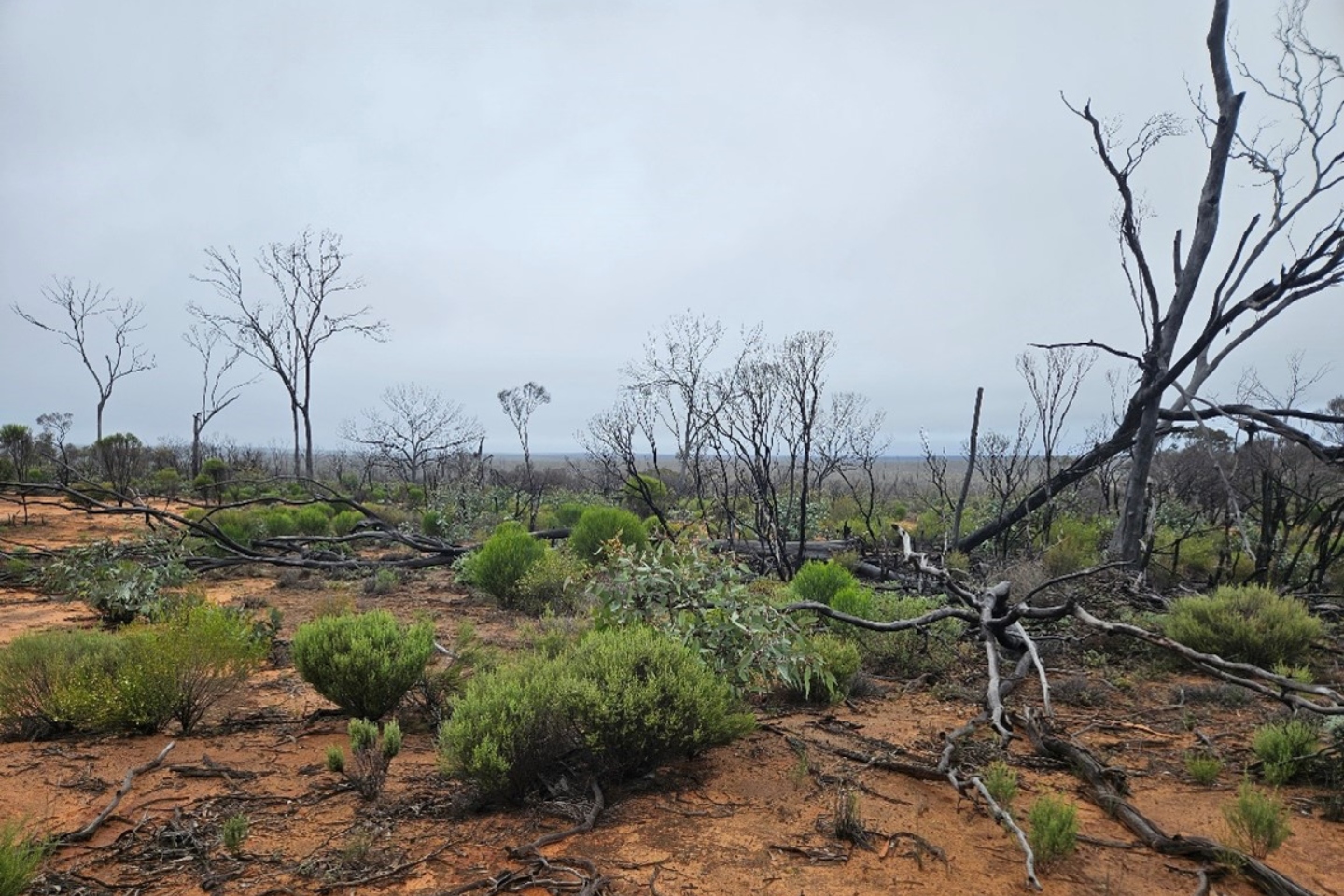Allup Silica has nabbed a prized at-surface heavy mineral sands project next to the Eyre Highway at Western Australia’s Eucla Basin in a bid to take advantage of a looming titanium shortage. The McLaren project, which has excellent road and rail access to the Port of Esperance, boasts a 2022 JORC-compliant resource of 280 million tonnes at 4.8 per cent heavy minerals.


Allup Silica has nabbed a prized at-surface heavy mineral sands project next to the Eyre Highway at Western Australia’s Eucla Basin in a bid to take advantage of a looming titanium shortage.
The McLaren project, which has excellent road and rail access to the Port of Esperance, boasts a 2022 JORC-compliant resource of 280 million tonnes at 4.8 per cent heavy minerals.
In return for 100 per cent of the exploration licences, the company has agreed to pay the vendors $150,000 in cash and a 1.5 per cent royalty. It will also give up 4.24 million shares on the completion of a prefeasibility study (PFS), subject to certain criteria, and a further 4.3 million shares will be issued once a full feasibility study is finished.
A $360,000 placement, which includes $150,000 from directors, has also been raised from investors to provide working capital.
Although it is too early to nail down the initial details of the project economics, the criteria to satisfy the successful conclusion of a PFS may just provide an insight into what the numbers might look like. The conditions include capital expenditure of no more than $110 million, an operating expense of less than $215 a tonne of concentrate and a pre-tax net present value (NPV) of more than $800 million
What makes the deposit so interesting, however, is that because it starts at surface, the project has a low strip ratio, which leads to less up-front costs and ultimately makes it more environmentally friendly to mine.
And, according to the company, ilmenite, the main source of titanium oxide – which is used primarily for white pigment – is trading at more than US$300 (AU$460) a tonne due to looming titanium supply shortages predicted on the back of mine closures in Kenya, South Africa and Mozambique.
The current owners, who according to the company are hanging up their boots, have spent nearly $13 million firming up the inferred resource at McLaren, However, they seemingly know a thing or two about mineral sands exploration, having been responsible for the initial discovery in 1970s of the historic Allied Eneabba minerals sands deposit, 150km north of Perth.
Part of the reason for the hefty expenditure was to bring in an updated resource estimate, which included assay and mineralogical analysis results that were received after a previous estimate was completed in 2015. The recent estimate of 280 million tonnes at 4.8 per cent heavy minerals incorporated a cut-off grade of 2 per cent and less than 30 per cent slimes – the clay component of most mineral sand deposits.
In total, 653 air-core (AC) holes were drilled between 2009 and 2021, with the mineralisation being hosted in relatively free-flowing red-orange sand, which is made up of 90 per cent well-sorted, fine to medium-grained quartz that becomes more clay-rich at depth.
Metallurgical work done on a 14-tonne sample in 2017 identified sulphate-grade ilmenite that produced typical quality rutile and zircon, with low levels of uranium and thorium.
Allup Silica managing director Andrew Haythorpe said: "This Project presents an excellent opportunity for Allup Silica to fulfill its plan of moving into production. Albeit a different (titanium) sand, the mining and washing processes are similar to silica sand, as well as the near surface mineralisation and low strip ratios. However, the higher product price and lower shipping volumes present a compelling opportunity for development.”
Haythorpe said the accessibility to the project’s ground in all seasons of the year allowed for more rapid progress, while infill drilling and further metallurgical work is being planned to begin “as soon as practicable".
Allup is now poised to advance with its PFS, which is expected to be completed within 18 months. The initial steps in the PFS include conducting infill drilling to upgrade the JORC classification to measured and indicated and running further metallurgical and mineralogical tests to optimise the product.
Additionally, the company needs to assess the modest slime content and develop an effective management program and confirm saline and potable water sources for mine supply.
Once completed, the PFS will allow Allup to firm up its project economics by increasing confidence in the deposit, mining methods and logistics. The study will use the previous conceptual work, with a focus on validating the proposed dry mining and dozer trap mining methods.
It is not often that a sizable brownfields site with a resource at surface and close to infrastructure becomes available at bargain basement prices. But when it does, investors usually sit up and take notice.
The McLaren project appears to be just that and keen eyes are likely to be keeping a close watch as the story unfolds.
Is your ASX-listed company doing something interesting? Contact: matt.birney@businessnews.com.au













